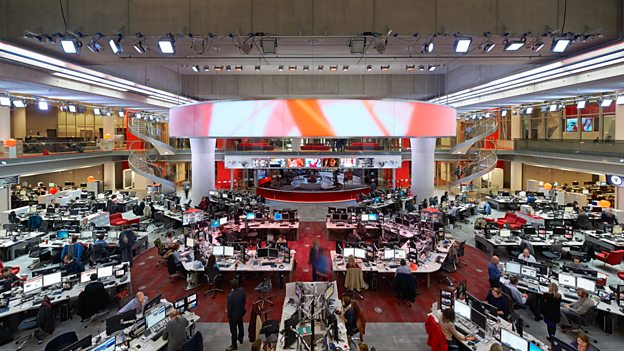BBC sets out modernisation plans

BBC News has set out an update on the plans it announced earlier this year to respond to changing audience needs.
The update addresses the BBC’s worsening financial position and draws on the experiences of operating during the Covid-19 crisis.
In January BBC News announced a series of modernisation proposals. Since then, faced with the Covid-19 crisis, BBC News has made huge operational changes to keep vital news services on air. During this time the proposals were paused, and will now be implemented in stages.
Director of BBC News and Current Affairs, Fran Unsworth, says: “Covid-19 has changed all of our lives. We are still covering the most challenging story of our lifetimes. During this crisis audiences have turned to BBC News in their millions and I’m incredibly proud of what we, as a team, have been able to achieve.
“But if we don’t make changes, we won’t be sustainable. This crisis has led us to re-evaluate exactly how we operate as an organisation. And our operation has been underpinned by the principles we set out earlier this year – fewer stories, more targeted and with more impact. We’re aiming to reach everyone, every day. For BBC News to thrive, and for us to continue to serve all our audiences, we have to change.”
Alongside structural changes in some departments, updated plans set out today include:
- Commissioning: the changes to working caused by the Covid-19 crisis mean it is not possible to go straight to the new way of working announced in January, but we will move towards it with a new commissioning group (made up of existing editors) to co-ordinate the biggest planned stories, avoid duplication and make BBC content go further
- Newsgathering: BBC News will have fewer reporters overall; more correspondents will increasingly be asked to work across a range of content rather than be ‘owned’ by individual programmes. We will invest in new community affairs roles around the country, while reducing numbers in London
- Digital: We want to ensure digital is at the heart of our journalism. A number of skilled digital journalists will move into the Newsgathering team and be deployed on stories. We will refocus the ‘rollout’ of our stories, so we break more stories in the morning when our digital audiences are highest
- Original journalism: a new team, bringing together expertise from areas such as the Victoria Derbyshire programme and BBC Stories, will focus on under-reported ‘off diary’ stories, producing content for daily news programmes and online
- TV political programming: Politics Live, currently airing on Wednesdays only, will return four days a week, Monday to Thursday
BBC Parliament will focus on live and as-live coverage of the elected chambers across the UK and produce daily and weekly highlights programmes. We will no longer commission most of the other bespoke programmes we currently make for BBC Parliament, although we will continue to draw on our archive to broadcast our popular historical election coverage - News channels: We will preserve two clearly branded news channels (the BBC News channel in the UK and BBC World News globally) with a focus on live, breaking and developing stories but will retain some elements of shared output in the mornings and evenings
- World Service English: we will make some of the current streamlined schedule changes permanent, including reductions in the duration of Newsday and The World This Week will be decommissioned. We will launch a new Africa-focused podcast
- Business output: To increase the impact of business coverage we will integrate it more closely with the rest of the output, and will no longer run the Business Online live page. We will reduce separate business bulletins on the News channel and BBC World Service English
- Radio: We will close In Business on BBC Radio 4 but continue long-form business content with The Bottom Line
Building on the lessons of operating during Covid-19, we will use fewer studios and make significant reductions to our operations staff.
The reduction in output means we will also reduce our pool of presenters.
The increased financial pressure on the BBC as a result of Covid-19 means the number of job losses in BBC News will rise to around 520, which is 70 more than the 450 announced in January. This will include senior management posts.
There will be a further update on plans later in the year.
Source: BBC Press Release
